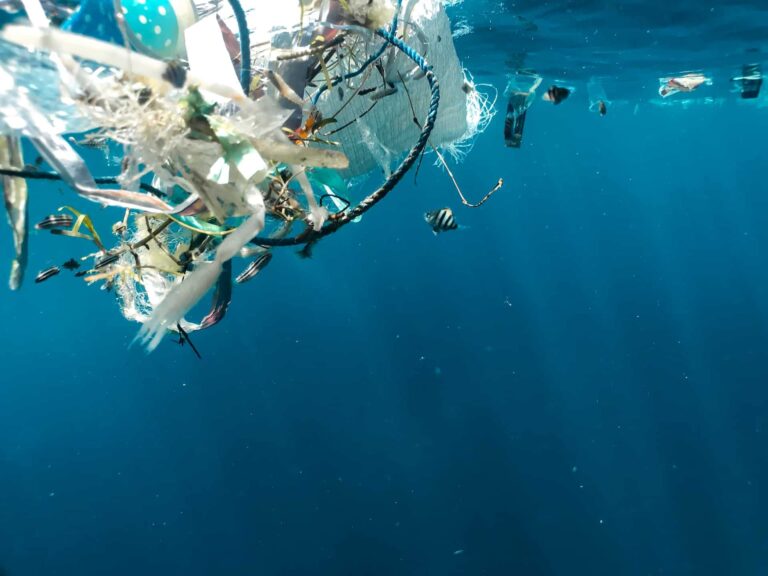Sea pollution is a problem that is becoming worse and has serious effects on both the environment and human health. Sea water can influence the rest of the habitat as it is the largest cover habitat, plus it can control the climatic effects. Human activities so far are the most responsible reason identified that causes sea pollution.
Along with the generation of harmful pollutants, the bad treatment of waste severely affects the health of our oceans. Let’s explore the causes of sea pollution and its wide-ranging consequences. We will also highlight the importance of addressing this critical issue.
Table of Contents
What is sea pollution
When seawater gets contaminated due to several human or natural reasons, this devastating condition is known as sea pollution. When we refer to contamination, it indicates various pollutants that degrade the quality of ocean waters, which can have detrimental effects on marine life, ecosystems, and even human health. Thousands of marine species are getting affected due to ocean pollution.
This human negligence and ill-treatment is mostly caused by plastic and agricultural runoff. Nearly 8 to 10 million metric tonnes of plastic enter the ocean each year. According to UNESCO, plastic waste makes up 80% of all marine pollution.
The preservation of our oceans has emerged as a matter of global significance. This gradual deterioration lay upon them by industrialization, urbanization, and unsustainable practices. It is imperative that we should undertake substantial actions to mitigate the pollution plaguing our seas. This is paramount to safeguarding the vitality and ecological diversity inherent in these pivotal ecosystems.
Read also: Great Pacific Garbage Patch, what is it and the solutions to treat it
The main causes of sea pollution
Sea pollution, caused by human activities and natural factors, poses a grave threat to marine ecosystems. Let’s explore the underlying causes behind this environmental crisis.
1. Industrial waste and chemical pollutants
The surge of industrialization has precipitated a sharp increase in activities that discharge a substantial quantity of waste and chemicals into the ocean, encompassing heavy metals, noxious substances, and pesticides. These contaminants possess the capacity to amass within the aquatic milieu and sediments, thereby posing a peril to marine organisms and engendering disturbances to the delicate equilibrium of the ecosystem.
2. Oil spills and leakage
Oil spills stand as a prominent catalyst of marine pollution, emanating from mishaps transpiring during oil extraction, transportation, or storage. These unfortunate incidents unleash substantial volumes of oil into the vast expanse of the ocean, thereby instigating catastrophic repercussions for marine life, coastal ecosystems, and the very subsistence of communities reliant upon the bounties of the sea.
3. Plastic pollution
The accumulation of plastic waste in the ocean has reached alarming levels. Plastic items such as bottles, bags, and microplastics not only mar the beauty of beaches but also endanger marine animals that mistake them for food or become entangled in them. This pollution threatens marine ecosystems and can have long-term consequences for the food chain.
4. Sewage and wastewater discharge
Improper disposal of sewage and wastewater directly into the sea contributes to pollution. These discharges introduce harmful pathogens, nutrients, and chemicals into marine environments, leading to the deterioration of water quality and the proliferation of harmful algal blooms.
The consequences of sea pollution
Sea pollution is causing devastating consequences, threatening marine life, ecosystems, and human well-being. Let’s explore the dire effects and urgent need for action to mitigate this global environmental crisis.
Impact on marine life and ecosystems
Sea pollution poses a significant threat to marine life, causing harm to various organisms such as fish, seabirds, turtles, and marine mammals. The ingestion of plastic debris and toxic substances can lead to internal injuries, poisoning, and even death. Furthermore, the disruption of ecosystems due to pollution can result in imbalances, affecting biodiversity and the overall health of the ocean.
Harmful effects on human health
Sea pollution not only affects marine life but also poses risks to human health. Consuming contaminated seafood can expose individuals to toxins and pollutants, leading to serious health issues, including gastrointestinal problems, neurological disorders, and even cancer. Additionally, swimming in polluted waters increases the likelihood of contracting waterborne diseases and skin irritations.
Economic implications
The consequences of sea pollution extend to the economic sphere. Industries such as fishing, tourism, and coastal development heavily rely on clean and healthy marine environments. Sea pollution can lead to the decline of fish stocks, damage to coral reefs and other habitats, and reduced tourism revenue. The economic impact can be significant, affecting local communities and national economies.
Read also: Blue Economy: what is it and what are its main components and principles
What steps should we take to lessen sea pollution
Addressing sea pollution requires concerted efforts from individuals, industries, and governments. Several measures can be taken to mitigate the pollution and protect the health of our oceans:
1. Strict regulations and enforcement
Governments need to establish and enforce stringent regulations regarding waste dispoōsal, chemical use, and wastewater treatment. Effective monitoring and penalties for non-compliance can deter polluters and ensure a cleaner marine environment.
2. Sustainable waste management practices
Adopting sustainable waste management practices is essential in reducing the amount of waste reaching the oceans. This includes proper recycling, waste segregation, and the promotion of circular economy principles to minimize waste generation.
3. Promotion of recycling and reuse
The amount of plastic and other debris that enters the oceans can be considerably decreased by promoting recycling and material reuse. Governments, businesses, and individuals should actively participate in recycling initiatives and support the development of sustainable alternatives to single-use plastics.
4. Public awareness and education
Raising public awareness about the consequences of sea pollution is crucial for fostering behavioral change. Education campaigns, community engagement, and informative materials can help individuals understand the importance of protecting the oceans and empower them to make environmentally conscious choices.
Read also: World Environment Day 2023: the theme is #BeatPlastic Pollution












